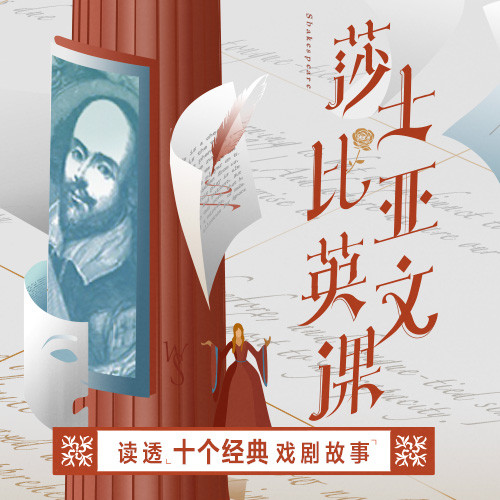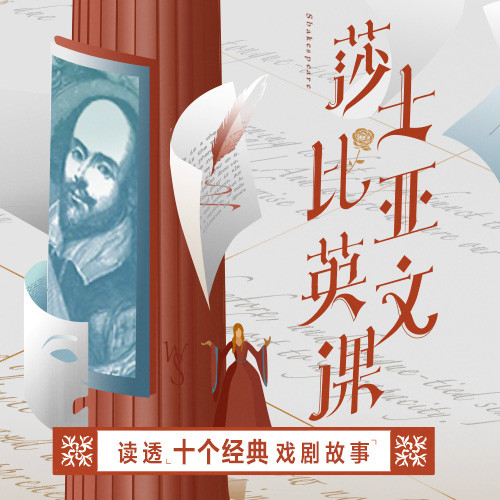总序丨说不尽的莎士比亚,辜正坤
作者:辜正坤
2020-08-02·阅读时长20分钟
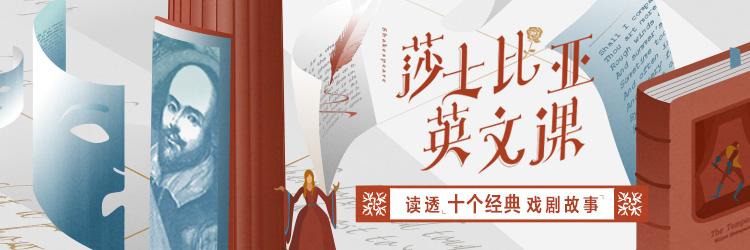
Preface to Online Course: Tales from Shakespeare
Prof. Gu Zhengkun
Hello, everybody!
This is Mr. Gu Zhengkun from Peking University speaking.
Welcome to this Online Course: Tales from Shakespeare.
Four hundred years ago, far away in England on the edge of Europe, there was a boy born to be a poet and dramatist shocking the world with a well-known great name to every household during the recent three hundred years. The name was William Shakespeare.
Indeed, to speak objectively by the standard of English Renaissance, the complete works as a whole now with Shakespeare as its author well live up to the reputation of the summit of the Renaissance literature. Or to speak with a little exaggeration, they are even regarded at least by some scholars as the acme of the whole Western literature. Nevertheless, there also have been doubts about the authorship of all those masterpieces ever since Shakespeare became known. It is a pity the present program could offer little room to discuss the interesting mystery here. However, it is surely indisputable that the great influence of what is called Shakespeare’s works upon world literary creations has been so far unprecedented and unparalleled, and that is, I suppose, the strongest reason for us to know and study Shakespeare today.
What, then, is so special about Shakespeare’s work that astounds the world? The answer requires a long speech. Here within the limited space, I could only chat about it in a few words.
First of all, Shakespeare's works impress us with an amazing diversity. It is very hard for us to find a second writer in the world who could manage so manifold subjects as Shakespeare. Besides the inclusively rich content, his works contain extremely numerous characters ranging from emperors, generals, gifted scholars, to ordinary men, beauties, villains and butchers…… all social classes lively flashing under his quill pen; it is the very pen with which we are brought almost everywhere from sea to land, court to country, foreign to local, and paradise to hell. It seems the poet enjoys displaying his genius by trying many literary forms such as tragedies, comedies, histories, romances and poems both narrative and lyrical. No reader when opening the volume can resist the charm of being deeply moved by the touches of philosophical reflections, the romantic love, the intertwined narration, the singing and sighing poetic muses, the turbulent emotions created by the ingeniously refined descriptions that rival even the divine skills.
Secondly, viewed from the perspective of learning English, Shakespeare is a master of the artistry of the English language. In the history of that language, the emergence of Shakespeare's works marks the maturity of the English language itself. He wrote with fluidity of thought, rhythm, and sound that the work is presented in a subtle manner that reading public is often rendered spellbound. Shakespeare not only invented lots of new words, but also got a good command of a shocking amount of vocabulary. A German scholar once took advantage of a computer to retrieve all the different words that Shakespeare used, to his great surprise, the number amounts to 43566 in all!
Thirdly, Shakespeare's works are highly entertaining. They are not boring sermons, but creations that can give readers or audiences great artistic enjoyment. Shakespeare's works often have obvious sensational effect, strongly intended to inflame people's repressed desires. The artistic orientation is said not to be purely designed for entertainment but to be set up for a strong hint at Western Humanism at that time. It was human-centred values employed by the Humanist to fight against the religious God-centred values popular for nearly one thousand years in Europe. Needless to say, Shakespeare's humanism is quite different from that advocated by ancient Chinese. Scholars. To put it briefly, the former affirms to a great extent the legitimacy of human's instinctive or primitive desires, while the latter mainly emphasizes the noble moral requirements of regulating human social order based on human benevolence. Both of them have entertainment effect, but the former is characterized with indulgence or excessive entertaining effect while the latter with abstinence or moderate self-disciplined pleasing effect. In other words, for the Westerners during the 16th and 17th centuries, Shakespeare's works implicitly coincided with the physically and psychologically entertaining pursuit on the part of millions of Westerners who tried to break away from the religious doctrine of excessive abstinence and move towards the liberation of personality. Thus its success corresponds to the needs of the improvement of social ideology itself.
Fourthly, Shakespeare's works, so to speak, can be deemed as an encyclopedia of western social life, a living fossil of the then western society. Therefore, understanding Shakespeare's works will greatly help us in understanding the real situation of the Western society. In mention of Shakespeare's works, Engels pointed out: "Even the first act of Merry Wives of Windsor alone contains far more stronger breath of life than that of German literature in its totality." Why can Shakespeare's works function as an encyclopedia of social life? The reasons, in addition to the three points I have mentioned above, lie in the so-called mirror theory suggested by Shakespeare which advocates that writers should realistically describe social life just as a mirror reflects all things. Therefore, most of the languages, events, characters, and even a variety of social and cultural customs, which Shakespeare depicted, vividly and truthfully reproduce the original state of the society in which Shakespeare lived. Suppose you want to travel through Europe during the 16th and 17th century and reflect on the social life at that time, reading Shakespeare is, as I suggest, the best shortcut.
Fifthly, when we study Shakespeare's works, we shall not forget a common sense: Shakespeare behaved himself first as a poet, and then as a dramatist. Poetry is supposed to be the crown of literature. All of Shakespeare's plays, except Merry Wives of Windsor, are composed in the form of blank verses.
Unfortunately, for a long time, many Chinese people mistook Shakespeare's works for dramas in the form of prose. I think that is the important point that calls for readers’ special attention, because knowing this will help us appreciate Shakespeare's works with the sense of poetic conception, which will undoubtedly and greatly enhance our understanding of, and reflection upon, Shakespeare's masterpieces.
Last but not the least, Shakespeare's works are mainly written in the form of poetry, and we know the Chinese history of literature spanning three thousand years is, too, crowned with poetry achievement. The Chinese Yuanqu and Mingqu are originally brilliant dramatic pieces in marriage with poetry. Therefore, to understand and appreciate Shakespeare as a poet, in a sense, is to construct a bridge between Chinese-English as well as Chinese-Western literatures for a mutual communication of subtle artistic spirit. In other words, understanding Shakespeare will greatly help us understand the flowers of Chinese Literature - Tang poetry, Song Ci-poetry and Yuanqu and Mingqu poetic dramas. Even if viewed only from a dramatic point of view, Shakespeare's works will too induce us to reread Chinese dramatic masters such as Guan Hanqing, Wang Shifu, Bai Pu, Ma Zhiyuan, and especially Tang Xianzu, one of Shakespeare's contemporaries. This sort of insight undoubtedly enables us not only to obtain pleasures in the fields of literature and art, but also to possess a sublimation of understanding and enlightenment in a fusion of typical Chinese and western styles at certain cultural levels.
Shakespeare is a topic that can never be exhausted.
I sincerely wish the launch of this online course would help Chinese learners have a deeper understanding of,and reflection on, this literary giant from a foreign land far far away.
Best wishes for all!
Thanks for attention.
World Literature Institute,
Peking University,
Monday, July 27, 2020
莎士比亚故事网上课程总序
辜 正 坤
四百年前,远在欧洲边缘的英伦诞生了一位伟大的诗人戏剧家,他在后来的三百年内,名震五洲,家喻户晓。他的名字叫威廉莎士比亚。
客观地说,现在署名莎士比亚的作品就其总体而言确实足以称为英国文艺复兴时期作品的代表;夸大一点说,它们甚至也时常被一些学者看作是整个西方文学作品的巅峰。不过,这些杰作的著作权问题自莎士比亚时代起就有争议,可惜本节目时间有限,无法就这个有趣的神秘话题展开讨论。但是,有一点是迄今为止无可争议的,那就是:现署名为莎士比亚的作品确实对世界文学创造产生过空前的影响,在这一点上可说是无与伦比,这也成为我们今天应该了解、学习莎士比亚的最强有力的理由。
署名莎士比亚的作品究竟有什么东西这么惊世骇俗?这个说起来话长,限于篇幅,我只能聊进数言。
首先,莎士比亚的作品内容具有惊人的多样性。世界上很难有第二个作家像莎士比亚这样能够驾驭极其广阔的题材。他的作品内容几乎无所不包,人物形象极其繁多。帝王将相、走卒凡夫、才子佳人、恶棍屠夫……一切社会阶层都展现于他的笔底。从海上到陆地,从宫廷到民间,从国际到国内,从天界到魔灵,……笔锋所指,无处不至。悲剧、喜剧、历史剧、传奇剧,叙事诗、抒情诗……都成为他显示天才的的文学样式。从哲理的韵味到浪漫的爱情,从盘根错节的叙述到一唱三叹的诗思,波涛汹涌的情怀,巧夺天工的笔触,凡开卷展读者,无不为之怦然心动。
其次,从学习英语的角度看,莎士比亚是一位语言艺术大师,在英国语言史上,莎士比亚作品的出现标志着英语语言本身走向成熟。他能以流走变幻的笔触抒写思想、节奏和音响,以精妙的方式呈现出作品,使读者读而时时神飞魄荡。莎士比亚不仅创造过很多新的词汇,他能够驾驭的海量词汇也令人叹为观止。一位德国学者利用电脑检索莎士比亚使用过的词汇,使他大吃一惊的是,莎士比亚使用过的不同词汇竟多达43566个!
再其次,莎士比亚的作品具有极高的娱乐性。他的作品不是枯燥的说教,而是能够给予读者或观众极大艺术享受的创造物。莎士比亚的作品往往具有明显的煽情效果,有意刺激人的欲望。这种艺术取向当然不是纯粹地为了娱乐而娱乐,掩藏在背后的是当时西方人的强有力的人本主义精神,即用以人为本的价值观来对抗欧洲上千年来的以神为本的宗教价值观。当然,莎士比亚的人本主义与中国古人所主张的人本主义有很大的区别。要而言之,前者在相当大的程度上肯定了人的本能欲望或原始欲望的正当性,而后者则主要强调以人的仁爱为本规范人类社会秩序的高尚的道德诉求。二者都具有娱乐效果,但前者具有纵欲性或开放性娱乐效果,后者则具有节欲性或适度自律性娱乐效果。换句话说,对于16、17世纪的西方人来说,莎士比亚的作品暗中契合了试图挣脱过分禁欲的宗教教义的约束而走向个性解放的千百万西方人的生理和心理娱乐性追求,因此,它的成功是契合了社会本身的意识形态改良的需要。
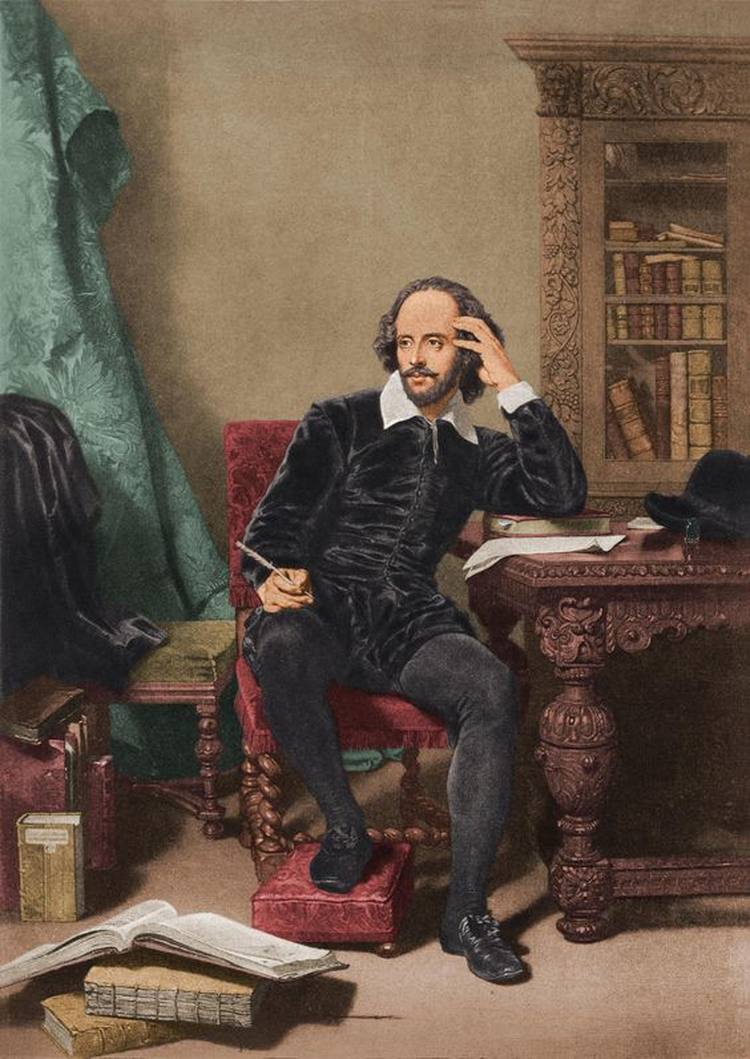
▲莎翁作品是了解16、17世纪欧洲社会生活的一扇窗 图源网络
此外,莎士比亚作品集可以说是西方社会生活的百科全书,是西方社会状态的活的化石。因此,了解莎士比亚的作品大大有助于我们了解西方社会的真实状况。对于莎士比亚的作品,恩格斯甚至指出:“单是《温莎女巧戏采花郎》的第一幕就比全部德国文学包含着更多的生活气息。”为什么莎士比亚的作品具有这种社会生活百科全书的作用?我想除了除了上面指出的三点原因之外,关键还在于莎士比亚的创作理念是所谓镜子理论。莎士比亚主张作家的描写要像镜子一样真切地反映、描摹社会生活。因此,莎士比亚笔下的语言、事件、人物,乃至种种社会文化风俗,大都相当逼真地再现了他所在那个时代的社会生活原状。你若想穿越到16、17世纪的欧洲,回味当时的社会生活, 那么,阅读莎士比亚的作品是最好的捷径。
学习莎士比亚作品时我们还不能忘记一个常识:莎士比亚首先是一个诗人,其次才是一个戏剧家。诗歌是文学的王冠。而莎士比亚的全部戏剧作品,绝大部分都是诗剧。可惜长期以来,许多中国人却误以为莎士比亚的作品都是话剧,是散文。这个需要特别提请读者们注意。知道了这一点,有助于我们在阅读莎士比亚的作品时,以诗心去欣赏、去品味,这无疑会大大增强我们对莎士比亚作品的理解与思考。
莎士比亚的作品是主要是诗歌,而中国三千年来的文学史也主要是以诗歌为最高成就。中国的元曲、明曲本来就是与诗歌联姻的辉煌的戏剧艺术作品。所以,理解鉴赏作为诗人的莎士比亚,实际上就是从某种意义上建构一座沟通中英、乃至中西文学艺术精神的桥梁。换句话说,理解了莎士比亚,也将大大有助于我们理解中国文学之花—唐诗、宋词、元明戏剧。即使只从戏剧的角度看,莎士比亚的作品也会诱导我们去重温戏剧大师关汉卿、王实甫、白朴、马致远、尤其是莎士比亚的同时代人汤显祖。这样的洞鉴无疑使我们不但能够获得文艺领域内的快乐,更能够获得文化层面上的中西合璧式的颖悟与知解力的升华。
说不尽的莎士比亚。
我衷心祝愿这个网上项目的推出,有助于让国人对这位来自异国他乡的文学巨擘有更深切的感悟与反思。
2020年7月27日星期一于北京大学世界文学研究所
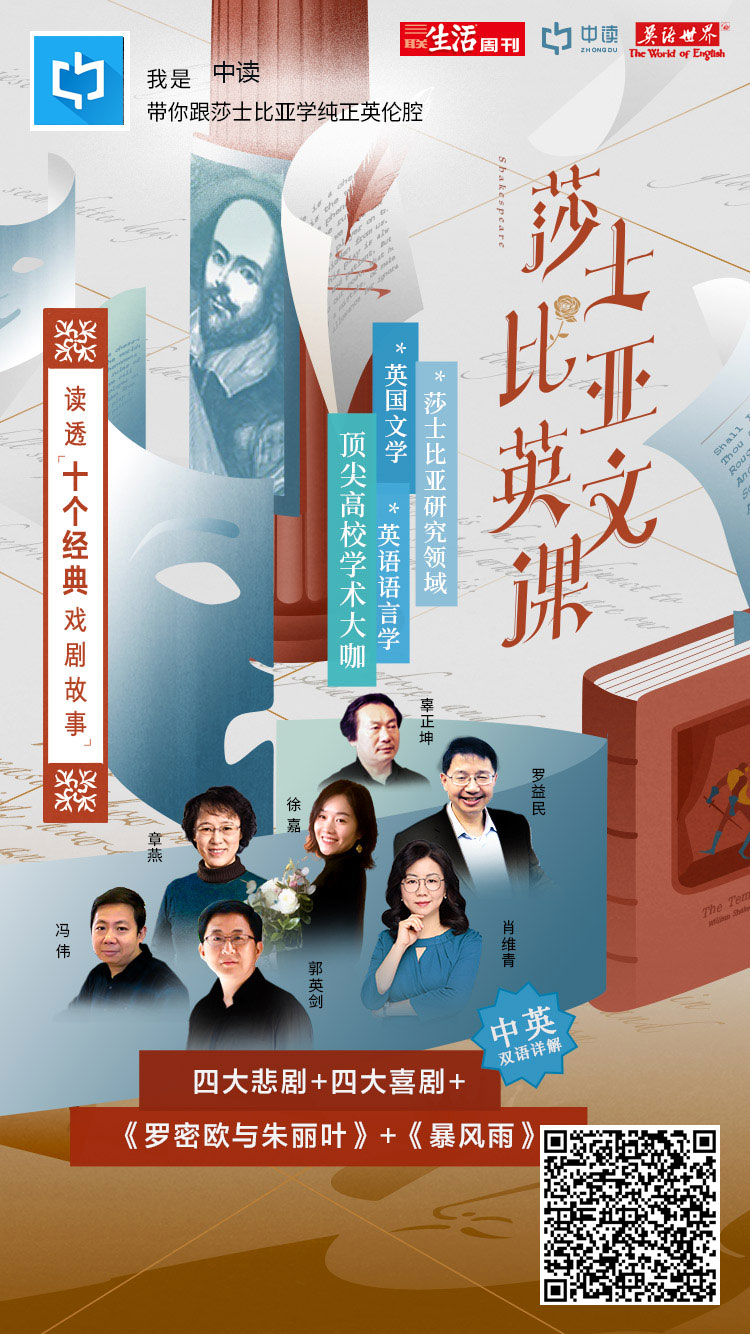
文章作者


辜正坤
发表文章0篇 获得39个推荐 粉丝61人
收录专栏
现在下载APP,注册有红包哦!
三联生活周刊官方APP,你想看的都在这里



